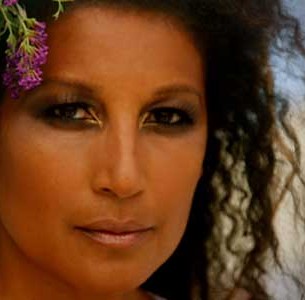
“I was really, really upset about it and decided to make an album about it. Our beautiful nature, that you have nowhere else in the planet. What is going to happen to it? They are completely emptying our wealth! Our heritage! Everything that we believe in!” exclaims Razia Said, Malagasy singer, songwriter and environmental activist.
She is talking about illegal logging in her natal land of Madagascar which is decimating one of the world’s treasures – the uniquely biodiverse ecosystem of the rainforest, home to three quarters of 200,000 species found nowhere else in the world.
Illegal logging has been a serious problem in Madagascar for decades. However, recently it has accelerated due to a change of regime and political corruption, coupled with a seemingly insatiable demand from countries such as the U.S. and China for protected woods. The result is that more than 80% of the original forest cover has disappeared, and half of that since the 1950s.
In the meantime, says Said, “the world has forgotten about Madagascar…but this is a world heritage, and should matter to us all. If anything, we should try to reforest the place and fix some of the damage.”
In an effort to raise awareness at the local and international level, Razia organized the Mifohaza Masoala (Wake Up Masoala) festival, which took place at the Masoala Rainforest in 2011. The concert featured a stellar line-up of Malagasy musicians and was enormously successful, with over 10,000 people in attendance and local communities planting of 20,000 trees to help alleviate the deforesting.
The concert included performances by Said, as well as Jaojoby, one of the most beloved Malagasy musicians, guitarist virtuoso Charles Kely, Saramba, an all-female group founded by Jaojoby’s wife Dina and several Malagasy dancers. Today, these artists continue as an eleven-member coalition now touring to take the message against illegal logging to the world.
Their “Wake Up Madagascar” concert centers on vibrant salegy music, characterized by lively body-shaking rhythms on the accordion brought by the French, rippling guitar riffs and rich vocal harmonies which also have their roots in French church choirs.

Music is the perfect vehicle for sharing their message, explains Said, as it has a special place in her culture: “It’s an accompaniment to every single thing we do in our life. Almost everybody can do harmonies and sing, and there is a song for every single occasion. So I think it is a good way to communicate with people in Madagascar and a good way to show our country to the world.”
But it’s not about chastising and lecturing people, she affirms: “We are not doing things the old way, like saying ‘Don’t do this, don’t do that’. We are hoping the music will take the message straight to people’s hearts. I’m not saying we have all the solutions, but at least we want to make people aware of what they have.”
—-
The Wake Up Madagascar tour comes to Chicago on July 15 to Martyrs.
Check Catalina’s blog, her radio show Beat Latino (On FB and itunes too!) as well as recent NPR features to explore the past, present and future of Latin music.
